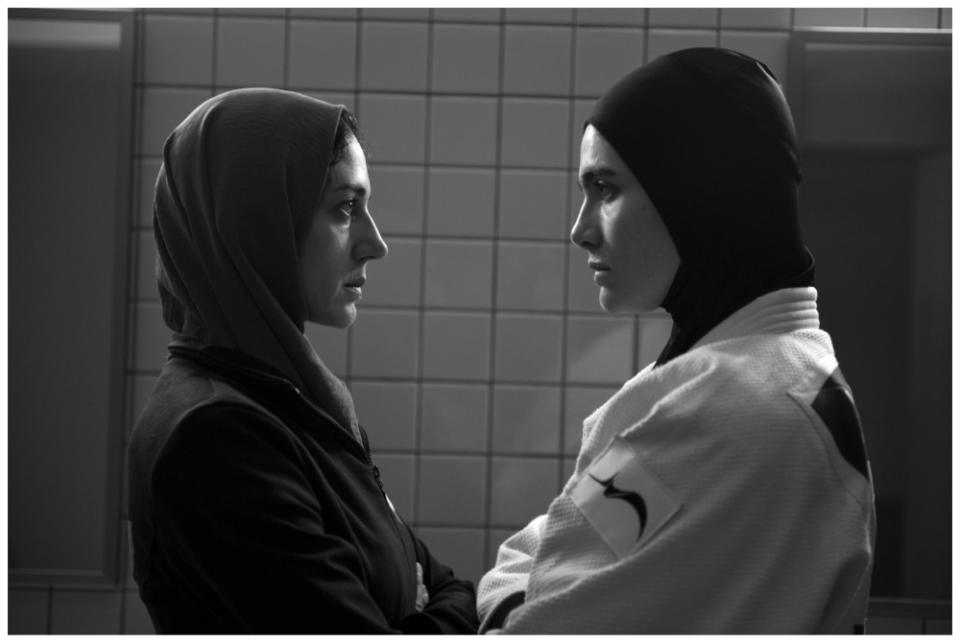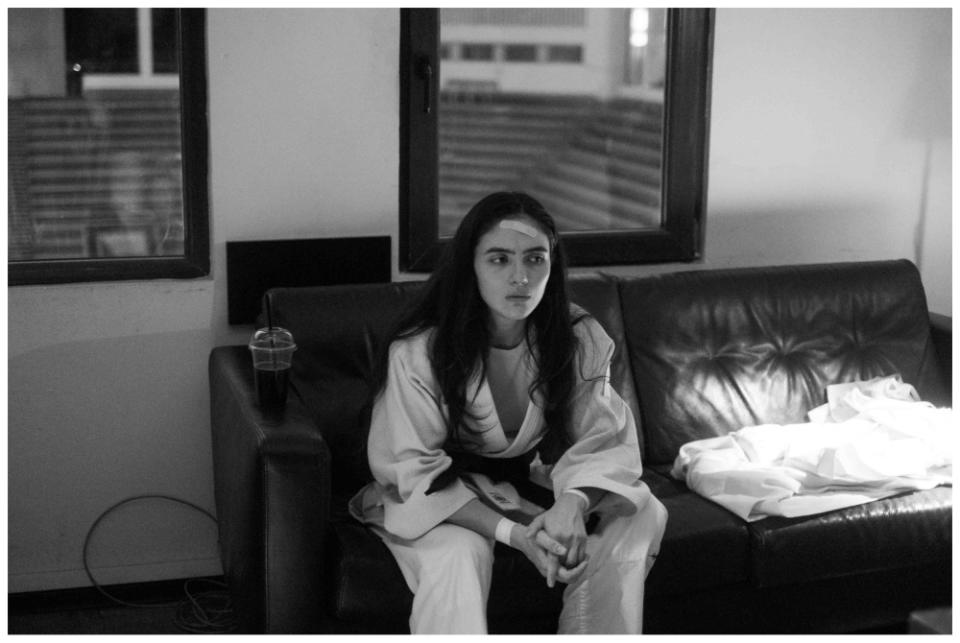‘Holy Spider’ Star Zar Amir Ebrahimi, Guy Nattiv Talk ‘Historic’ Iranian-Israeli Collaboration on ‘Tatami’: ‘Courage Can Be Contagious’

“Holy Spider” breakout Zar Amir Ebrahimi and Guy Nattiv are set to make history with “Tatami,” the first feature co-directed by an Iranian and an Israeli filmmaker.
Premiering in Venice Film Festival’s Horizons section, “Tatami” shows Iranian female judo fighter Leila (played by “The L Word: Generation Q” star Arienne Mandi) heading to the world championships with her coach Maryam (Ebrahimi). Soon, they receive an ultimatum: in order to avoid squaring off against an Israeli opponent, Leila should immediately fake an injury and drop out.
More from Variety
“Can you imagine how many threats I have received after ‘Holy Spider,’ accusing me of ‘working with Jews’? We are not even allowed to call someone Israeli. It’s always ‘the occupying regime,’” Ebrahimi says.
Fearing for their safety, they decided to shoot in secret.
“We didn’t want anyone to know about it. We shot in Tbilisi in Georgia, two hours away from Tehran and two hours from Tel Aviv. We even stayed in different hotels! We needed to stay underground,” Nattiv adds.
“At school, they would tell us that Iran was the enemy, it was Satan himself. They just wanted us to be afraid. Zar didn’t know me and it took her a while to trust me, but at one point we just looked at each other and said: ‘We are the same people,’” he says.
Produced by Mandy Tagger and Adi Ezroni for Keshet Studios, as well as Jaime Ray Newman and Nattiv himself for New Native Pictures, “Tatami” is sold by WestEnd Films.
Ebrahimi – who scored a best actress win at Cannes for Ali Abbasi’s thriller “Holy Spider” and recently closed Locarno with “Shayda” – has been pondering a move into directing for a while, developing a solo project under the working title of “Honor of Persia.”
“It has been a real collaboration and a good preparation for when I make my own film one day. I know it’s a ‘historic’ project, but with Guy, we just shared so many ideas,” she says.

“When we started to cast, I thought: ‘No one is going to say yes.’ And then everyone did! It was the same with the [Iranian] Women’s Revolution. Courage can be contagious.”
Nattiv adds: “We decided we will do exactly what the government and the regime prevent us from doing. I hope this will encourage other people from ‘hostile’ countries to collaborate like this. Not just when making films.”
Inspired by the grittiness of paranoid thrillers from the 1970s, “Tatami” was sparked into existence by real-life cases of Iranian athletes defecting to other countries, from boxer Sadaf Khadem to Taekwondo champion Kimia Alizadeh.
“So many of them are starting to rebel against the regime. To work so hard and then to hear you have to suddenly ‘abort the mission’… It just doesn’t make any sense. I just read about an Iranian athlete [weightlifter Mostafa Rajaei] who got punished because he shook the Israeli opponent’s hand,” he adds.
“Tatami” echoes their powerful statements, he says, when Leila and Maryam finally deliver a message of their own: “I wore what they ordered me to, I repeated everything they told me. I am one of millions of people under the control of the Islamic regime of Iran. None of us matter to them. We are all tools.”
“At one point, Guy wanted to remove [this monologue]. I insisted on adding it, because I made this movie as an Iranian and I have to make a statement as well. I am sure I will be asked to do that in Venice as well,” Ebrahimi says.
On the day of the film’s premiere, Italian fest is expected to hold a flash mob on the red carpet in solidarity with the women and men of Iran, partly in reaction to the conviction of director Saeed Roustaee.
“You don’t always feel like doing it, but you have to tell the world you are done. Also because it can be inspiring to others,” she adds.
Praising “amazing” co-star Mandi, Ebrahimi admits that depicting their characters’ desperate plight, on and off the mat, took a toll on them both.
“It was intense. But for women in Iran, that’s our life: every day is a fight. When we meet her, Maryam has been dealing with it for 10 years: with the lies, with not being allowed to be herself. But this ‘fake’ life starts to burn you.”
While the film’s claustrophobic setting and its black and white cinematography also reflect their current reality, observes Nattiv, Ebrahimi tries to remain optimistic.
“Maybe one day their life will be in color again,” she says.

Best of Variety
Sign up for Variety’s Newsletter. For the latest news, follow us on Facebook, Twitter, and Instagram.


